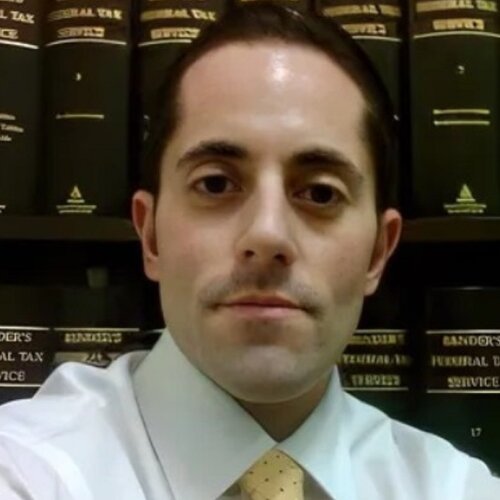Best Will & Testament Lawyers in Massachusetts
Share your needs with us, get contacted by law firms.
Free. Takes 2 min.
Or refine your search by selecting a city:
List of the best lawyers in Massachusetts, United States
United States Will & Testament Legal Questions answered by Lawyers
Browse our 1 legal question about Will & Testament in United States and read the lawyer answers, or ask your own questions for free.
- Hi, I like to get the information about my deceased sister government pension in Sind Govt.
- I am living in usa and my sister was the govt employee in pakistan about 25 to 27 years. she was unmarried and my parents also passed. I like to know who will the benifits after her death. She passed during her job. I really appreciate it if you guide... Read more →
-
Lawyer answer by A A Abdullahi Law Firm
Hello, Her next of kin will be you and so you shall be the one to receive the benefits and her properties. You can contact us vfor assistance on the documentation and procession
Read full answer
About Will & Testament Law in Massachusetts, United States
A Will & Testament is a legal document that allows you to specify how your assets should be distributed after your death. In Massachusetts, having a valid Will ensures your wishes are honored and streamlines the process for your loved ones. A Will names beneficiaries for your property, appoints guardians for minor children, and designates an executor to oversee the administration of your estate. Without a valid Will, Massachusetts law will determine how your estate is divided, which may not align with your intentions.
Why You May Need a Lawyer
While it is possible to create a simple Will on your own, there are many situations where professional legal help is highly recommended. Common reasons include:
- Complex family situations, such as blended families or estranged relatives
- Owning significant or complicated assets, such as businesses or out-of-state property
- Desiring to set up trusts or specific distributions to heirs
- Wanting to minimize estate taxes or avoid probate complexities
- Having minor or dependent children who need guardianship arrangements
- Needing to disinherit someone or exclude particular individuals
- Concerns about Will contests or legal disputes among heirs
A lawyer can ensure your Will complies with all Massachusetts legal requirements and adequately expresses your wishes, reducing the risk of legal challenges and administrative hurdles.
Local Laws Overview
Massachusetts has specific laws governing the creation, execution, and administration of Wills. Important points include:
- Legal age: You must be at least 18 years old and of sound mind to create a Will.
- Written requirement: Wills must be in writing. Oral Wills are not recognized.
- Witnesses: The Will must be signed by the testator (person making the Will) and witnessed by at least two individuals who are not beneficiaries under the Will.
- Self-proving affidavits: A Will can be made “self-proving” with a notarized affidavit, speeding up the probate process.
- Revocation: A Will can be revoked by creating a new Will or physically destroying the old one.
- Probate process: Most Massachusetts Wills go through the state’s probate courts. There is an expedited process known as voluntary administration for small estates.
- Spousal elective share: Spouses in Massachusetts have legal rights to a portion of the estate, even if they are not named in the Will.
- Intestacy: If someone dies without a valid Will, the Massachusetts laws of “intestate succession” will determine how the estate is distributed.
Frequently Asked Questions
What happens if I die without a Will in Massachusetts?
If you die “intestate,” the Massachusetts intestacy laws will determine how your property is divided among your closest relatives, such as your spouse, children, parents, or siblings. The outcomes may not match your personal wishes.
Who can serve as a witness to my Will?
Any competent adult can serve as a witness, but it is best that witnesses are not beneficiaries or heirs mentioned in your Will to avoid potential legal complications.
Can I make changes to my Will after it has been executed?
Yes. You can update your Will at any time through a codicil (an amendment) or by creating a new Will that explicitly revokes the old one.
Do I need a lawyer to create a valid Will in Massachusetts?
It is not legally required, but having an attorney helps ensure your Will meets all state requirements and captures your wishes accurately, especially in complex situations.
What is probate and how does it work in Massachusetts?
Probate is the legal process by which a deceased person’s assets are inventoried, debts are paid, and remaining property is distributed to heirs. In Massachusetts, most estates must go through probate, but some assets may pass outside probate based on ownership or beneficiary designations.
Can I disinherit a close family member?
Yes, except for your spouse who has certain legal rights under Massachusetts law. For all others, it is possible to disinherit, but you should make your intention clear in your Will.
Are handwritten Wills valid in Massachusetts?
Handwritten Wills, also known as holographic Wills, are not automatically valid in Massachusetts unless they satisfy the state's formal requirements for written and witnessed Wills.
What is a self-proving affidavit?
A self-proving affidavit is a notarized statement attached to a Will, signed by the testator and witnesses, affirming that the signing formalities were followed. It allows the Will to be admitted to probate without requiring witness testimony.
Does a Will cover all of my property?
Not necessarily. Some assets, like jointly owned real estate, life insurance proceeds, or retirement accounts with designated beneficiaries, are not controlled by the terms of your Will.
How do I revoke my Will?
You can revoke your Will by physically destroying it, writing a new Will that states it replaces all prior Wills, or by writing an official statement of revocation that meets legal requirements.
Additional Resources
Those seeking more information or assistance with Wills and Testaments in Massachusetts can consult the following:
- Massachusetts Probate and Family Court: Offers forms and information about probating estates and filings
- Massachusetts Bar Association: Provides lawyer referral services and educational materials
- Massachusetts Legal Aid Organizations: Such as Greater Boston Legal Services and Massachusetts Legal Assistance Corporation, offering free or low-cost help for qualifying individuals
- Local Law Libraries: Many have guides and sample forms on estate planning and Wills
- Senior Centers and Councils on Aging: Often provide workshops or legal clinics on estate planning topics
Next Steps
If you are considering drafting or updating your Will, or have questions about administering an estate, take these steps:
- Make a list of your assets and consider who you wish to include as beneficiaries
- Think about who you would trust to act as your executor or personal representative
- Contact a qualified Massachusetts estate planning attorney for a consultation, especially if your estate is complex or you have unique family concerns
- Gather all important records, including deeds, account statements, and previous Wills if any
- Consider attending an educational seminar or consulting available resources to better understand your options
Creating or updating a Will is a critical step in ensuring your wishes are followed and your loved ones are protected. Seeking appropriate legal advice gives you peace of mind and confidence that your estate will be handled according to your intentions.
Lawzana helps you find the best lawyers and law firms in Massachusetts through a curated and pre-screened list of qualified legal professionals. Our platform offers rankings and detailed profiles of attorneys and law firms, allowing you to compare based on practice areas, including Will & Testament, experience, and client feedback.
Each profile includes a description of the firm's areas of practice, client reviews, team members and partners, year of establishment, spoken languages, office locations, contact information, social media presence, and any published articles or resources. Most firms on our platform speak English and are experienced in both local and international legal matters.
Get a quote from top-rated law firms in Massachusetts, United States — quickly, securely, and without unnecessary hassle.
Disclaimer:
The information provided on this page is for general informational purposes only and does not constitute legal advice. While we strive to ensure the accuracy and relevance of the content, legal information may change over time, and interpretations of the law can vary. You should always consult with a qualified legal professional for advice specific to your situation.
We disclaim all liability for actions taken or not taken based on the content of this page. If you believe any information is incorrect or outdated, please contact us, and we will review and update it where appropriate.
Browse will & testament law firms by city in Massachusetts
Refine your search by selecting a city.











